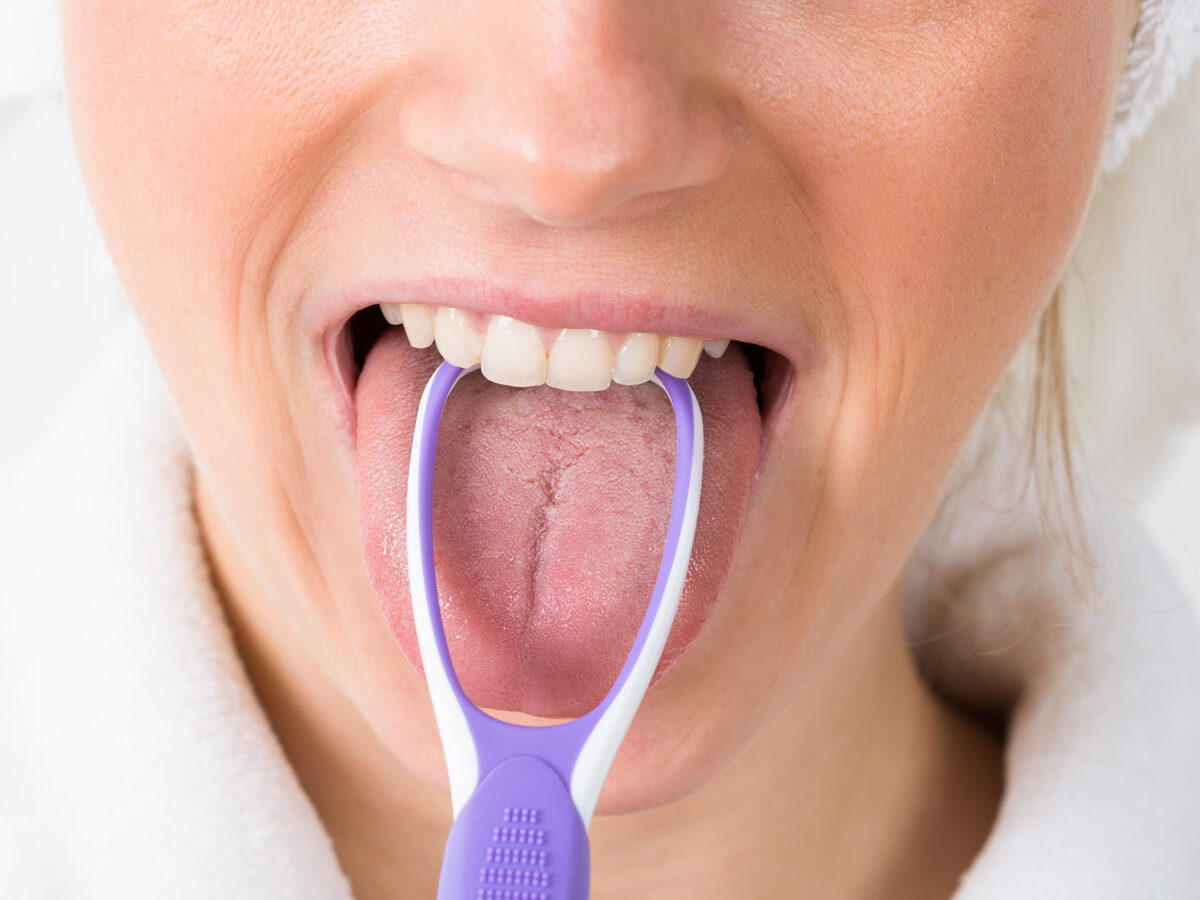Blog
Dental hygiene tips for healthy teeth & gums

Do You Use A Tongue Scraper Before or After Brushing?
The necessity of regular dental hygiene is common knowledge, but many people dismiss the value of brushing their tongues. Do you need to clean your tongue? Indeed, yes! You’ll be amazed at how quickly and effectively brushing your tongue can eliminate harmful bacteria, improve your health, and boost your mood.
Knowing how to clean your tongue is an important skill that will contribute to better oral hygiene.
What should you do first, tongue scraping or brushing?
To maintain dental hygiene, you can do tongue scraping after brushing your teeth. The most effective method for removing plaque from the tongue and mouth has been demonstrated to be the use of a tongue scraper. And unlike a toothbrush, which may be bulky and deep, tongue scrapers are typically much smaller and more discrete.
- Metal or plastic tongue scrapers:
These can easily be used by simply moving the tool from the tongue’s back to its front. Be sure to scrape the entire tongue and not just the tip. If necessary, repeat this process anywhere from two to five times, and then wash the scraper in running water before using it again.
- Toothbrush
The toothbrush is the best tool for cleaning the tongue. This should work in place of a tongue scraper if you don’t have the time to go find one. Due to the constant contact between the tongue and teeth, which causes the spread of bacteria, it is unnecessary to use a separate toothbrush for the tongue. Tongue cleaning can be done either before or after tooth brushing.
Both the cleaning implements and the mouth should be rinsed with water after each use.
How can tongue scraping add to oral health?
Use a tongue scraper or toothbrush in addition to mouthwash to get the best results. If you want to have healthy teeth and gums, mouthwash alone won’t cut it. Your dentist may soon instruct you to also clean your tongue if you solely use mouthwash.
Make sure your tongue is free of any plaque or bacteria and your mouth feels clean after using whichever method you choose. Brushing your teeth and tongue twice a day is a must. The two most typical times to brush are right after waking up in the morning and right before bed.
Tooth decay, gum disease, and cavities can all be prevented by removing the bacteria that thrive on your tongue with a regular tongue-brushing routine. To avoid having a dry mouth, it’s a good idea to drink enough water. In other words, this will help you avoid having foul breath.
Perk Up Your Defences
The tongue is the mouth’s first line of defense against foreign substances. Your immune system relies heavily on the health of your tongue because bacteria that settle there can easily be absorbed and spread to other regions of the body. Tongue brushing strengthens the immune system by preventing the spread of bacteria.
- Brushing your tongue is especially important while you’re sick, as more bacteria can accumulate from sneezing and coughing, further weakening your immune system.
- Helps Decrease Plaque: Plaque levels were found to be lowered in studies when participants regularly cleaned their tongues.
- Freshens Your Sense of Taste and Smell: Who doesn’t want a fresh, clean feeling? Tongue cleaning can help you and those around you enjoy the benefits of a cleaner, fresher mouth.
Wrapping Up
Now you know! This is your how-to use a tongue scraper manual for removing the white coating off your tongue. We trust that this article helps you learn about the importance of keeping your tongue and mouth clean.
